The following featured National Geographic explorers have presented some excellent TED Talks about various topics connected to Geography.
Derek and Beverly Joubert
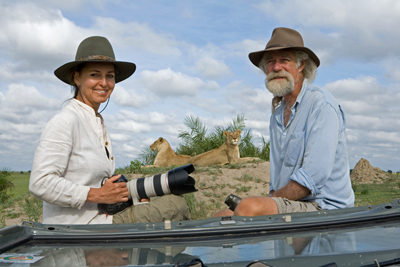 Derek and Beverly Joubert are Emmy-winning documentary filmmakers, as well as wildlife conservationists for more than 25 years. Based in Botswana, the couple is dedicated to understanding and preserving key species throughout the African continent, especially lions, leopards, cheetahs, and other big cats. In fact, they are leaders of National Geographic’s Big Cat Initiative, which is committed to saving big cat populations around the globe. The Jouberts are also building a new model for preservation as partners in Great Plains Conservation, which aims to save endangered habitats through low-impact tourism and commerce. Learn more about Derek and Beverly Joubert.
Derek and Beverly Joubert are Emmy-winning documentary filmmakers, as well as wildlife conservationists for more than 25 years. Based in Botswana, the couple is dedicated to understanding and preserving key species throughout the African continent, especially lions, leopards, cheetahs, and other big cats. In fact, they are leaders of National Geographic’s Big Cat Initiative, which is committed to saving big cat populations around the globe. The Jouberts are also building a new model for preservation as partners in Great Plains Conservation, which aims to save endangered habitats through low-impact tourism and commerce. Learn more about Derek and Beverly Joubert.
In the TED Talk, “Life Lessons From Big Cats”, Derek and Beverly Joubert discuss their careers in the field, and why they are so passionate about saving the big cat populations of Africa. They share videos and photographs that they took in the field, and also first-hand experiences they have had with big cats. The Jouberts stress the importance of conservation and saving these magnificent creatures, and why it is crucial to do so.
Aziz Abu Sarah
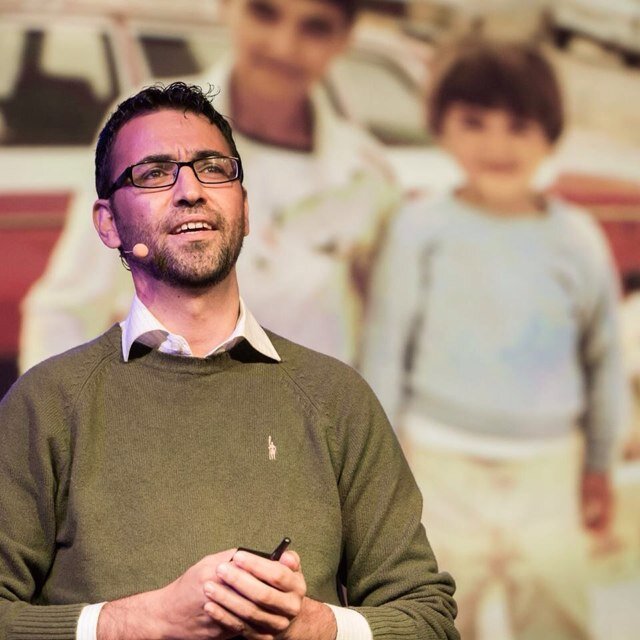 Aziz Abu Sarah grew up as a Palestinian boy in Jerusalem. His brother was tortured and killed, and he spent his teen years in the resistance movement- writing inflammatory articles, organizing demonstrations, spreading hate, and opposing peace. Necessity brought him to a Hebrew class however, where he met Jewish people who were not soldiers and who became his friends. He saw they were human beings just like him, and that he had a choice to make a difference. Abu Sarah currently dedicates his life to using personal stories and cross-cultural learning to forge unprecedented understanding and positive social change. His tactics are as diverse as religious, political, and social groups he works to bring together. A walking embodiment of the reconciliation he strives to achieve, Abu Sarah is a Muslim who works closely with rabbis and Christian groups and speaks Arabic, Hebrew, and English. To learn more about Aziz Abu Sarah, click here.
Aziz Abu Sarah grew up as a Palestinian boy in Jerusalem. His brother was tortured and killed, and he spent his teen years in the resistance movement- writing inflammatory articles, organizing demonstrations, spreading hate, and opposing peace. Necessity brought him to a Hebrew class however, where he met Jewish people who were not soldiers and who became his friends. He saw they were human beings just like him, and that he had a choice to make a difference. Abu Sarah currently dedicates his life to using personal stories and cross-cultural learning to forge unprecedented understanding and positive social change. His tactics are as diverse as religious, political, and social groups he works to bring together. A walking embodiment of the reconciliation he strives to achieve, Abu Sarah is a Muslim who works closely with rabbis and Christian groups and speaks Arabic, Hebrew, and English. To learn more about Aziz Abu Sarah, click here.
In the TED talk, “For more tolerance, we need more… tourism?”, Abu Sarah discusses how to use tourism to bring down the walls that separate people. He emphasizes how tourism can be used to make connections between different groups of people, through the use of food, music, dance, cultural immersion, and face-to-face interaction. It is time to get tourists actually out into cultures instead of just taking pictures from bus windows, and Aziz Abu Sarah hopes that this is the future of travel.
Sylvia Earle
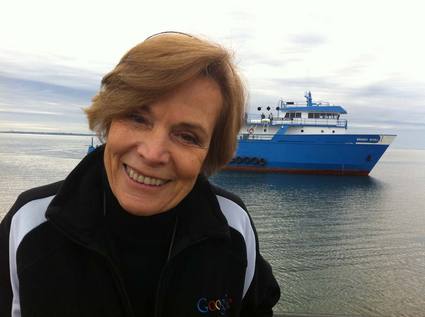 Sylvia Earle has been an ocean explorer for the past four decades and has led more than 50 undersea expeditions. With having spent more than 7,000 hours underwater, she is by far one of the most expert ocean scientists in the world. Earle was the captain of the first all-female team to live underwater, and walked untethered on the sea floor at a lower depth than any other woman in history. She has started various companies to build undersea vehicles to allow scientists to explore deeper and deeper depths of the world’s oceans, and is a dedicated advocate for oceans and the creatures that live in them. To learn more about Sylvia Earle, click here.
Sylvia Earle has been an ocean explorer for the past four decades and has led more than 50 undersea expeditions. With having spent more than 7,000 hours underwater, she is by far one of the most expert ocean scientists in the world. Earle was the captain of the first all-female team to live underwater, and walked untethered on the sea floor at a lower depth than any other woman in history. She has started various companies to build undersea vehicles to allow scientists to explore deeper and deeper depths of the world’s oceans, and is a dedicated advocate for oceans and the creatures that live in them. To learn more about Sylvia Earle, click here.
In the TED Talk, “My Wish: Protect Our Oceans”, Sylvia Earle shares compelling information, statistics, and photographs of the oceans’ dwindling health and biodiversity. The human race has wrecked havoc on undersea ecosystems and sea creature populations, and it is time to make a change. Earle stresses how we still have a chance to change and save the world’s oceans, and why it is critical that we do so.
Nathan Wolfe
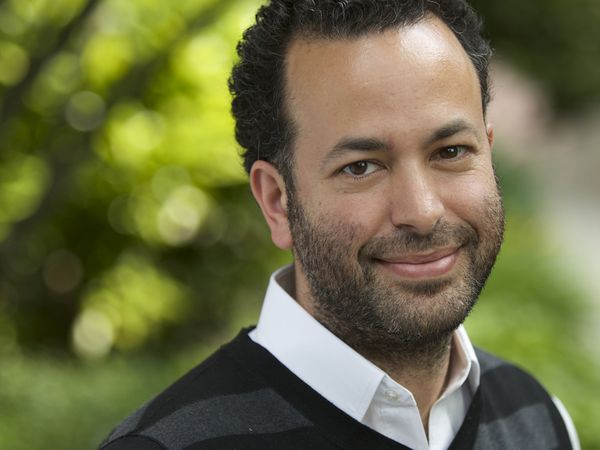 Nathan Wolfe is a proclaimed virus hunter. With blood samples, high-tech tools, and fieldwork, Wolfe hopes to re-invent pandemic control and reveal hidden secrets of the virus. His research has turned the field of epidemiology on its head, and attracted world attention. He has proven that viruses not only spread from animals to humans, but that they do so all the time. Through this and other epidemiologic breakthroughs, Wolfe’s research opens the door to preventing epidemics before they happen, via early warning systems and alleviating the poverty that results in easy transmission. To learn more about Nathan Wolfe, click here.
Nathan Wolfe is a proclaimed virus hunter. With blood samples, high-tech tools, and fieldwork, Wolfe hopes to re-invent pandemic control and reveal hidden secrets of the virus. His research has turned the field of epidemiology on its head, and attracted world attention. He has proven that viruses not only spread from animals to humans, but that they do so all the time. Through this and other epidemiologic breakthroughs, Wolfe’s research opens the door to preventing epidemics before they happen, via early warning systems and alleviating the poverty that results in easy transmission. To learn more about Nathan Wolfe, click here.
In the TED Talk, “What’s Left to Explore?”, Nathan Wolfe discusses the phenomenon of biological dark matter, unknown matter that makes up a large percentage of our own genetic code. He emphasizes that even though humans have explored every continent, mapped every land, and even went to the moon, there is still much for humans to explore within our own bodies at the microscopic level.
Wade Davis
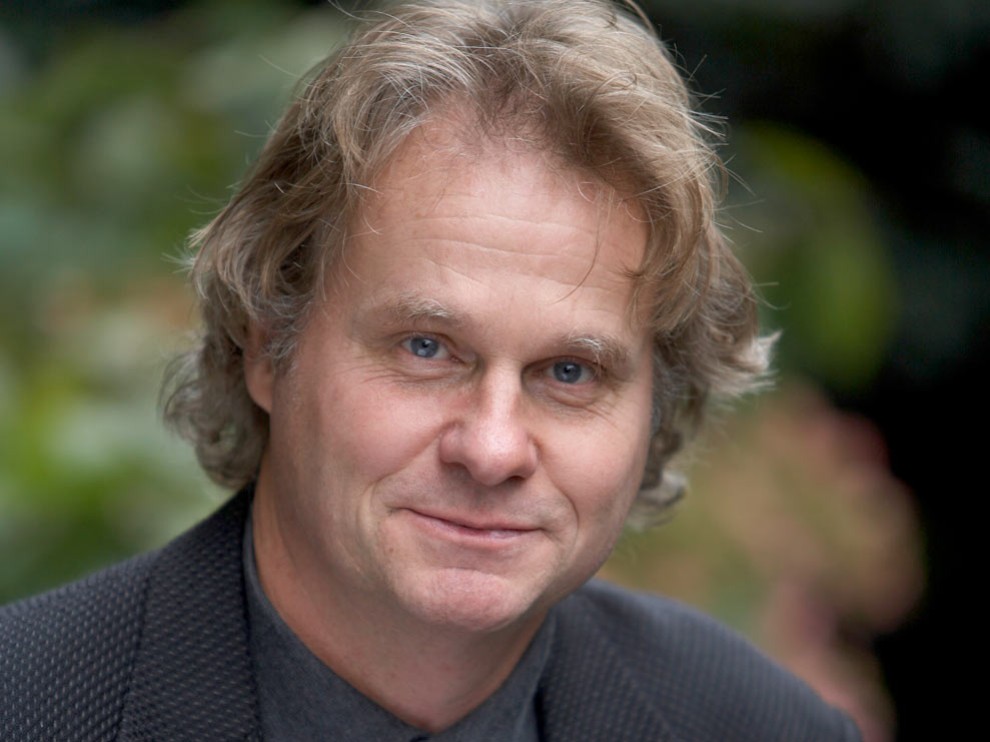 Wade Davis is an anthropologist and ethnobotanist, and one of the world’s most influential western advocates for indigenous cultures. He has been described as a “rare combination of scientist, scholar, poet, and passionate defender of all of life’s diversity”. He travels the globe to live alongside indigenous people, and documents their cultural practices in books, photographs, and film. Davis promotes the idea that indigenous cultures are unique expressions of the human imagination and heart. To learn more about Wade Davis, click here.
Wade Davis is an anthropologist and ethnobotanist, and one of the world’s most influential western advocates for indigenous cultures. He has been described as a “rare combination of scientist, scholar, poet, and passionate defender of all of life’s diversity”. He travels the globe to live alongside indigenous people, and documents their cultural practices in books, photographs, and film. Davis promotes the idea that indigenous cultures are unique expressions of the human imagination and heart. To learn more about Wade Davis, click here.
In the TED talk, “The Worldwide Web of Belief and Ritual”, Wade Davis discusses the amazing qualities of various indigenous cultures he has lived with. He describes religion, art, rituals, beliefs, and traditions that these cultures consist of. Davis explains how indigenous people are not failed attempts at modernity, but their own chosen ways of life. All humans are connected, and every culture has its own piece to the puzzle of what it means to be human and alive.
Spencer Wells
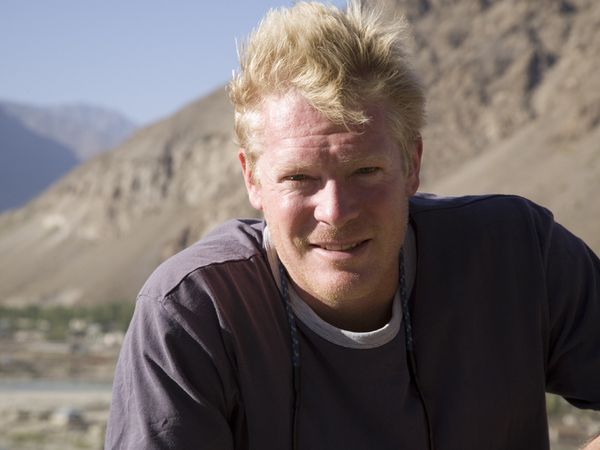 Spencer Wells is a leading population geneticist and director of National Geographic’s Genographic Project. He leads the search for human populations who hold the history of mankind in their DNA, and is an expert on humankind’s family tree. Wells eventually hopes to close the gaps in our knowledge of human migration, as well as to capture a genetic snapshot of humanity before it is erased forever. To learn more about Spencer Wells, click here.
Spencer Wells is a leading population geneticist and director of National Geographic’s Genographic Project. He leads the search for human populations who hold the history of mankind in their DNA, and is an expert on humankind’s family tree. Wells eventually hopes to close the gaps in our knowledge of human migration, as well as to capture a genetic snapshot of humanity before it is erased forever. To learn more about Spencer Wells, click here.
In the TED Talk, “A Family Tree for Humanity”, Spencer Wells discusses how all humans alive today are descended from a single man who lived in African around 60,000-90,000 years ago. Wells dives into how this one man eventually became the multicultural, globe-spanning body of life known as humanity, and how there is still much to learn. Homo sapiens are a relatively new species in the span of evolution, and Wells’ Genographic Project is committed to tracing genetic markings back to their location of origin.


